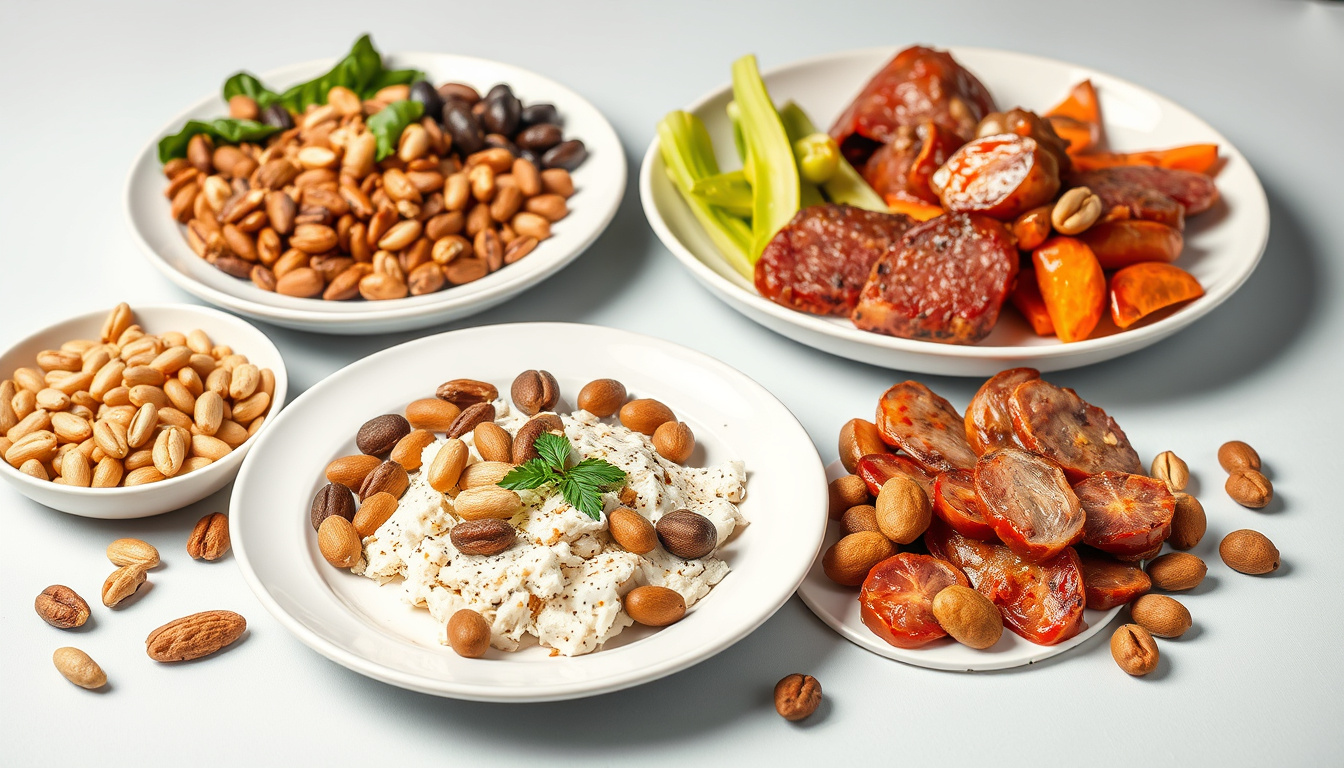In the pursuit of a healthier lifestyle and improved fitness, far too many overlook one of the most vital nutrients: protein. Proper protein intake is essential for muscle repair, immune function, hormone production, and overall well-being. Whether you’re an athlete, a fitness enthusiast, or someone looking to maintain good health, understanding how to optimize your protein intake can make a significant difference in achieving your goals. In this article, we’ll explore what protein intake entails, why it’s crucial, and how to tailor it to fit your specific needs for better health and fitness.
Why Is Protein Intake So Important?
Proteins are the building blocks of life. Made up of amino acids, they perform a multitude of functions in your body, including:
- Muscle repair and growth
- Supporting immune health
- Producing enzymes and hormones
- Maintaining healthy skin, hair, and nails
For those engaged in physical activity, proper protein intake helps repair muscle tissue and promote muscle synthesis, leading to enhanced strength and endurance. Conversely, inadequate protein intake can lead to muscle loss, fatigue, and compromised immune health.
According to the World Health Organization, the average daily protein requirement for adults is approximately 0.8 grams per kilogram of body weight, but this varies based on activity level, age, and health status (source). Understanding these nuances is vital for optimizing your intake.
How to Determine Your Ideal Protein Intake
Your optimal protein intake depends on various factors, including:
- Age
- Gender
- Activity level
- Goals (muscle gain, weight loss, maintenance)
- Health conditions
Here’s a simple guide to help you calculate your needs:
| Goal / Activity Level | Protein Intake Range (grams per day) |
|---|---|
| Sedentary adult | 0.8 g per kg of body weight |
| Recreational exerciser | 1.0 – 1.2 g per kg of body weight |
| Endurance athlete | 1.2 – 1.4 g per kg of body weight |
| Strength training / muscle building | 1.4 – 2.0 g per kg of body weight |
Example: If you weigh 70 kg and aim for muscle building, your protein intake should be approximately 98 to 140 grams per day.
Tips for Optimizing Your Protein Intake
Achieving optimal protein intake requires strategic planning and mindful choices. Here are some effective tips:
-
Distribute Protein Intake Throughout the Day
Instead of consuming most of your protein at dinner, aim to include quality protein sources in every meal and snack. This supports muscle protein synthesis throughout the day. -
Choose High-Quality Protein Sources
Focus on complete proteins, which contain all essential amino acids. These include animal products like eggs, dairy, lean meats, and fish, as well as plant-based options like quinoa, soy, and lentils. -
Incorporate Plant-Based Proteins
For those following vegetarian or vegan diets, combining different plant sources (e.g., beans and rice) can ensure adequate amino acid profiles. -
Use Protein Supplements When Necessary
Whey, casein, or plant-based protein powders can fill nutritional gaps and are convenient post-workout options. -
Monitor Your Overall Dietary Intake
Keep track of your daily protein consumption to ensure you’re meeting your goals without exceeding recommended limits, which could strain your kidneys over time. -
Stay Hydrated
Increased protein intake requires adequate hydration to aid kidney function and overall metabolism.
Sample High-Protein Meal Plan
Here’s a quick example of how you might structure a day to optimize your protein intake:
- Breakfast: Scrambled eggs with spinach and whole-grain toast (20 grams)
- Snack: Greek yogurt with berries and nuts (15 grams)
- Lunch: Grilled chicken salad with mixed vegetables and quinoa (35 grams)
- Snack: Protein shake or smoothie (20 grams)
- Dinner: Baked salmon with roasted vegetables and brown rice (40 grams)
- Optional Post-Workout: Protein bar or shake (20 grams)
This balanced approach ensures sustained amino acid availability and supports your fitness goals.
Common Myths About Protein Intake
-
Myth 1: "Consuming excessive protein is harmful."
Truth: Moderate excess is generally safe for healthy individuals, but overly high intakes over long periods may stress the kidneys. -
Myth 2: "Vegetarians cannot get enough protein."
Truth: With careful planning, plant-based diets can provide all essential amino acids. -
Myth 3: "Protein supplements are necessary for muscle gain."
Truth: Whole foods can meet your protein needs; supplements are convenient but not mandatory.
FAQ: Your Questions About Protein Intake
Q1: How much protein should I consume daily for optimal health?
A: For most adults, a daily intake of around 0.8 grams per kilogram of body weight suffices. Athletes or those aiming for muscle growth might need between 1.2 to 2.0 grams per kilogram. Consult a healthcare provider for personalized advice.
Q2: Can I increase my protein intake without negative health effects?
A: Yes, within recommended ranges. Ensuring adequate hydration and balanced diet is key, especially if increasing intake significantly for athletic goals.
Q3: What are the best sources of protein for vegetarians?
A: Legumes (beans, lentils), soy products (tofu, tempeh), dairy, eggs, and grains like quinoa are excellent sources of complete or complementary proteins.
Why Proper Protein Intake Enhances Your Fitness Journey
Optimizing your protein intake isn’t just about muscle building—it’s integral to overall health, immune resilience, and metabolic efficiency. Properly distributed and high-quality protein sources can accelerate recovery, improve performance, and support long-term wellness. Moreover, tailoring your intake to your unique lifestyle and goals ensures sustainable progress.
In conclusion, understanding and strategizing your protein intake is a powerful step toward better health and fitness. Start by assessing your current habits, set clear goals, and incorporate diverse, high-quality protein sources into your daily routine. Your body will thank you for the nourishment, and you’ll notice the difference in your strength, energy, and overall vitality.
Take charge of your health today by optimizing your protein intake—your body’s foundation for a stronger, healthier life!
Contact me at heywesfrank@gmail.com

Leave a Reply